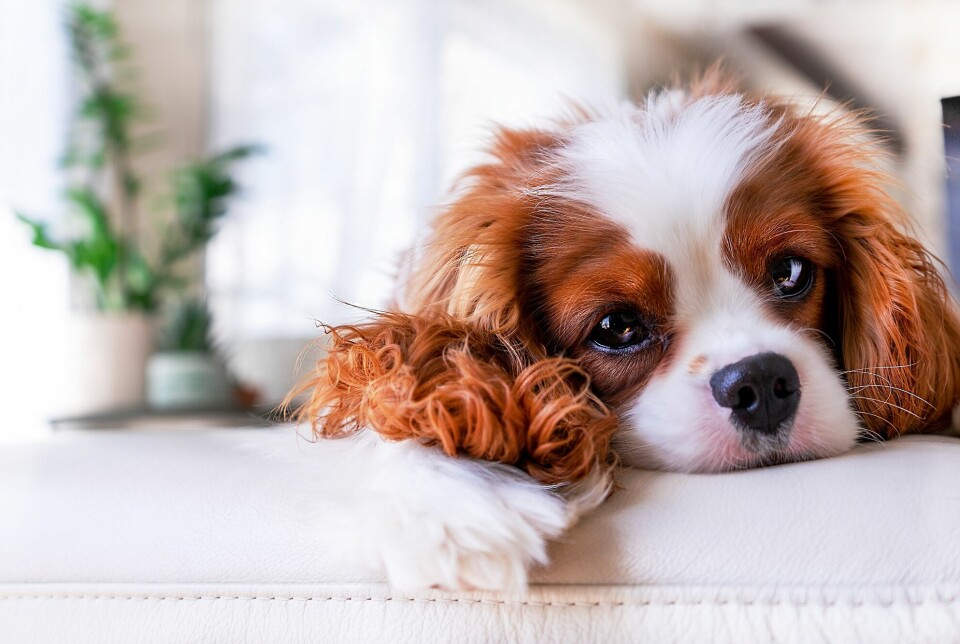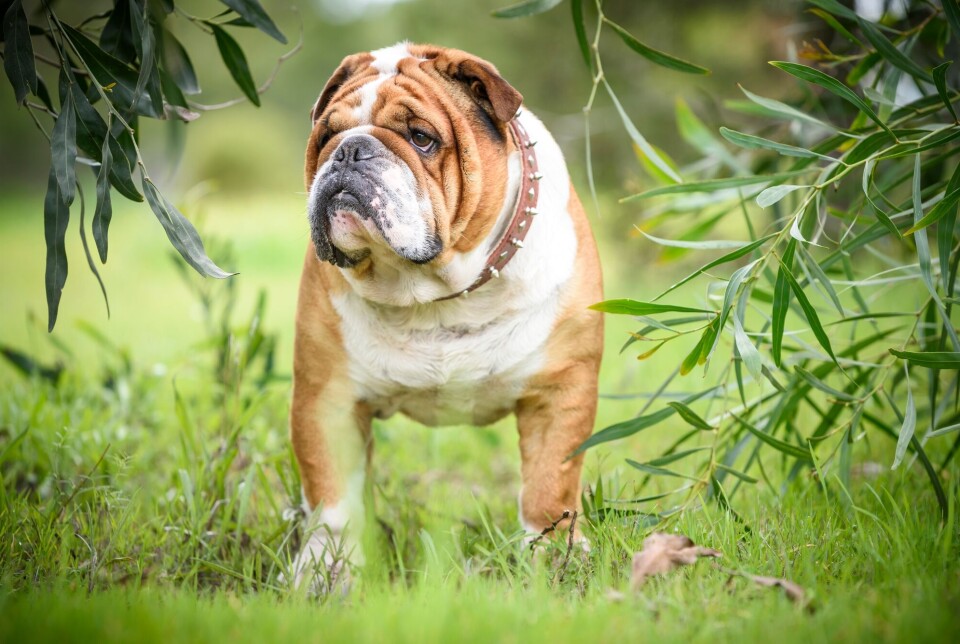
Why Norway has banned the breeding of Cavalier King Charles Spaniels
Norway’s Supreme Court has ruled that the breeding of Cavalier King Charles Spaniels violates the Animal Welfare Act. A Norwegian professor believes the court has made a mistake in allowing further breeding of English Bulldogs.
The Supreme Court of Norway has now ruled that the breeding of Cavalier King Charles spaniels is in violation of the Norwegian Animal Welfare Act. The breeding of English Bulldogs is still possible according to specific breeding guidelines.
The Norwegian Society for Protection of Animals (NSPA) took legal action against the Norwegian Kennel Club (NKC), the Norwegian Cavalier Club, the Norwegian Bulldog Club, and six breeders.
The NSPA believes that the breeding of Cavalier King Charles Spaniels and English Bulldogs violates section 25 of the Norwegian Animal Welfare Act.
Most viewed
These dog breeds are particularly prone to disease, partly as a result of targeted breeding for certain external features such as short muzzles and small heads.
Breeding of Cavaliers banned in Norway
The Supreme Court of Norway has now partially upheld the NSPA, stating that the breeding of Cavaliers is in violation of the Animal Welfare Act.
Further breeding of this dog breed in Norway will therefore be prohibited.
Section 25 of the Norwegian Animal Welfare Act states that breeding which negatively affects the animal's functioning or reduces the possibility of natural behaviour is prohibited.
The Supreme Court stated that specific breeding programmes show no evidence of significant improvements for the breed in the short term.
Breeding of English Bulldogs is still allowed
“The judgment thus confirms that breeding of Cavalier King Charles Spaniels, which for years has perpetuated hereditary disorders and diseases, is not only unethical but also an actual violation of Norwegian law,” Åshild Roaldset stated in a press release (link in Norwegian). She is a veterinarian and the CEO of the NSPA.
It is still legal to breed English Bulldogs, but only with a clear framework for the future.
The Supreme Court has upheld the Court of Appeal judgment that the breeding of English Bulldogs will still be permitted, provided breeders follow a specific breeding programme.

The skull is too small for the brain
“It’s good that further breeding of the Cavalier is now illegal. But I believe the Supreme Court has landed on the wrong side when it comes to the English Bulldog,” Henning Andreas Haga says.
Haga is a professor in the Anaesthesia and Radiology Section at the Norwegian University of Life Sciences, NMBU.
Sciencenorway.no has asked Haga to explain the problems with these dog breeds.
A large proportion of the Cavalier breed has one of two neurological conditions. Both are due to the skull being too small in relation to the brain volume.
“There’s too little space for the nervous system, which causes the dogs pain,” Haga says. “The dogs will show symptoms that they’re in pain. On CT and MRI scans, we can see that the shape of the skull means that the brain has too little space."
Painful cysts in the spine
The Cavalier’s brain experiences altered pressure conditions and is squeezed down into the spinal cord. This can lead to cysts, fluid-filled cavities in the spine, which can damage nerve pathways and cause pain," Haga explains.
The conditions can lead to the disorders Chiari-like malformation (CM) and symptomatic syringomyelia (SM). Both conditions cause the dogs pain.
“One of the problems with this Cavalier breed is that the dogs selected for breeding are chosen based on their appearance, with a small skull,” he says.

As a result, all dogs of this breed have inherited health problems and pain.
The degree of inbreeding has resulted in few individuals with slightly larger skulls to breed with, which could have made the breed healthier, according to Haga.
Bulldogs also have problems
English Bulldogs also have major health problems. Haga believes the breeding of both breeds should have been banned. His involvement in these issues stems from his experience with canine anaesthesia.
The problem for English Bulldogs is that they easily contract BOAS, the collective term for respiratory disorders.
BOAS is a syndrome that causes breathing difficulties for dogs, such as are caused by the bulldog’s flattened muzzle, the Supreme Court writes
English Bulldogs are also vulnerable if they require surgery.
"They have been selectively bred for a short and broad head with such a small nose that they stop breathing when they require anesthesia," Haga explains.
Anaesthesiologists have to monitor them extra closely as they wake up from the anaesthesia.
“We have to be really careful about removing the tube when they wake up,” he says.
Breeding of the English Bulldog can continue
Because the Norwegian Bulldog Club has initiated a breeding programme to reduce disease, continued breeding in line with this breeding programme will not be against the law.
Only breeding within the clearly defined framework of the Norwegian Bulldog Club's new rules will be fully legal. Breeding outside the framework will be illegal.
The Supreme Court's conclusion assumes that the Norwegian Bulldog Club's new rules will lead to sufficient improvements, both in terms of respiratory disorders and the proportion of caesarean sections.
The Supreme Court expects the breeding programme to show positive results in terms of reducing severe BOAS, brachycephalic obstructive airway syndrome.
Breeding will never improve
“It's a shame about the bulldog. The Supreme Court has set clear frameworks and guidelines for continued breeding of the breed,” the NSPA writes in an email.
“But it amounts to a game for the gallery. We know that the ‘health programme’ that’s been initiated for the respiratory problems of the bulldog (BOAS) will never be sufficient, due to the breed's inbreeding and multiple health problems."
"The breed is so inbred and has developed a 'disease guarantee', so futher breeding without new blood can never be good. This can only go one way – downhill.”
“It’s sad that more dogs will have to suffer throughout their lives, when we know that the breeding will never improve."
Breeders have actively caused problems for the dogs
Haga believes the health problems of these dog breeds are a consequence of the way dogs have been selected for breeding.
“It’s unreasonable for animals to have to suffer because humans prefer these characteristics,” he says.
As a result of breeding over time, most dogs are also too closely related, which creates problems when trying to improve the breed from a health perspective, he believes.
“There is simply too much inbreeding, and we know that it’s not good,” Haga says.
Demand for problem breeds must stop
Haga fears that the Supreme Court judgment will have little effect on dog breeding in general. He believes dog owners and breeders need to change their attitude.
“People who are going to buy a dog have to stop asking for breeds that aren’t doing well. And people who breed dogs have to start prioritising the dogs' health and temperament over their appearance,” Haga says.
The decision has been handed down under dissent.
Two judges have a different view of the threshold and believe that it has not been crossed for Cavaliers either.
Attracted attention abroad
The dog breeding issue has received enormous attention from abroad, according to the NSPA. Now, a snowball effect has started internationally.
“Our work on unethical breeding has had major ripple effects in Europe. In a lot of countries, the authorities now understand that dog breeding needs to change,” Åshild Roaldset of the NSPA stated in a press release on the Norwegian News Agency (NTB).
———
Translated by Ingrid P. Nuse.
Read the Norwegian version of this article at forskning.no
References:
Norway's Supreme Court: Breeding of Cavalier King Charles Spaniels is a violation the Animal Welfare Act, while breeding of English Bulldogs under a certain breeding program is not, Supreme Court of Norway judgment, civil appeal, appeal against judgment, 10 October 2023.
Viktig seier for hundene i Høyesterett (Important victory for dogs in the Supreme Court of Norway), Norwegian Society for Protection of Animals (NSPA), press release on NTB, 11 October 2023.





































